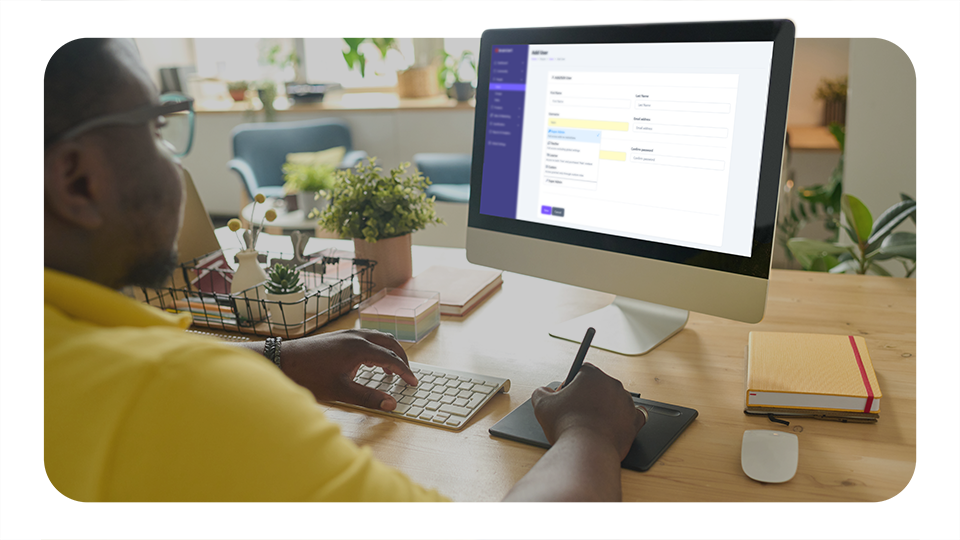In the vast expanse of the digital landscape, where user experiences reign supreme, the term "Custom User" emerges as a beacon of individuality and tailored interactions. From software developers to UX/UI designers, professionals across industries understand the importance of creating personalized experiences for their users. One powerful tool that enables this customization is the use of custom user roles. Far more than just a classification, the Custom User embodies the essence of personalized digital journeys, wielding immense importance and multifaceted roles. Join us on a captivating exploration into the world of Custom Users and the transformative impact they bring to the digital realm.
Defining the Custom User
The term "Custom User Role" typically refers to a specific and personalized role or designation assigned to an individual within a digital platform or system. Unlike predefined or standard user roles, a custom user role allows for more flexibility and tailoring of permissions based on the specific needs and responsibilities of a user.
In various online platforms, especially content management systems (CMS), websites, or applications, administrators have the option to create custom user roles. These roles define what actions a user can perform, what content they can access, and other permissions related to their interactions with the platform.
- For example, in a blogging platform, standard user roles might include "Administrator," "Editor," "Author," and "Subscriber."
- However, if there's a need for a role that has a unique set of permissions not covered by these standard roles, an administrator can create a custom user role.
- This custom role might have specific capabilities that align with the user's responsibilities, ensuring a more tailored and secure user experience.
A custom user role is a specific and personalized set of permissions and responsibilities assigned to an individual user within a digital system, allowing for a finer level of control and customization.
Importance of Custom User Roles
When it comes to creating a personalized user experience, one important aspect to consider is the use of custom user roles. Custom user roles allow for the delivery of the right information and functionality to the right user at the right time.
- Careful implementation of personalization is crucial for ongoing success. This starts with assigning user roles carefully. Assigning a user the wrong "type" of role can result in a frustrating experience that may even deter them from using the system altogether.
- It's important to be cautious with the source of data used for personalization. For example, when personalizing information by location or role for an intranet, the database storing this information must be kept up-to-date. Without accurate and reliable data, personalization efforts may fall short.
- Personalization should go beyond just delivering content. It should also consider delivering appropriate functionality to users. This means ensuring that users have access to the tools and features they need to effectively engage with the system.
- Retaining user control over the personalized experience is essential. Users should be able to customize their access privileges and have control over what information they see and how they interact with the system. This ensures a positive user experience and allows users to tailor their experience to their specific needs.
- When creating custom user roles, it's important to consider the broader interests of users. Avoid being too specific or restrictive in assigning roles. For example, pegging a user "interested in technology" based on one specific action may not accurately represent their broader interests.
- Personalization based on location or role should rely on accurate and updated databases. It's important to have a reliable source of data to ensure that the right information is being delivered to the right users.
Custom user roles are crucial in creating a successful personalized user experience. They allow for delivering the right information and functionality to users while ensuring that users have control over their experience.
How to Create and Assign Custom User Roles
With the Custom Access tier, users with Owner access can create custom roles with specific administrative and employee field permissions. This allows you to micro-manage access and ensure that only authorized individuals can view sensitive information or perform certain tasks.
Examples of custom roles that your organization might consider creating include Hiring Manager, HR Specialist, Accounting Team, and IT Manager. These roles can be tailored to each position's specific responsibilities and permissions.
Use the link Customizing User Types to learn more!
Once the custom role has been created, you can add users to it and define match criteria. This means that only employees who meet specific criteria, such as department or job title, will be assigned to the custom role. This helps ensure that the right people have the right access and responsibilities within your organization.
Custom User Roles vs Default User Roles
Understanding the difference between default user roles and custom user roles is important for managing access levels in your application.
Default user roles, such as Administrator, Instructor, Proctor, and Student, come with predefined permissions and access levels.
These roles are designed to cover common user needs and provide a starting point for managing user access.
However, there may be situations where the default roles do not meet the specific needs of your organization. This is where custom user roles come into play.
Custom user roles allow you to tailor access levels and permissions to specific user groups, providing more flexibility and control.
With custom roles, you can micro-manage access and assign specific permissions to authorized individuals, ensuring that they have the appropriate level of access to view sensitive information or perform specific tasks.
By understanding the difference between default user roles and custom user roles, and utilizing the ability to customize access privileges, you can streamline managing user permissions and ensure that each user has the appropriate access levels and capabilities for their assigned tasks.
To Conclude
Custom user roles play a crucial role in delivering personalized user experiences in today's digital landscape. By creating and assigning custom roles within an organization, businesses can streamline user permissions, define precise sets of permissions for different user groups, and ultimately enhance the overall user experience. It's time to clutch the power of custom user roles and unlock the key to personalized user experiences.






